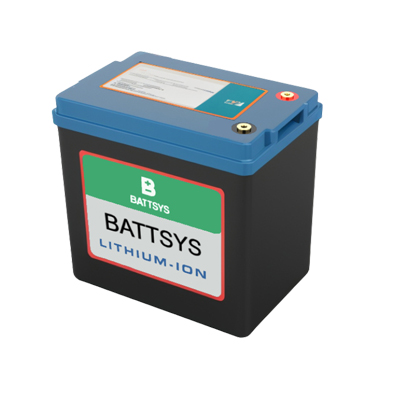Factors to consider when choosing
marine batteries.
Battery capacity: Battery capacity refers to the amount of energy that a battery can store, measured in ampere hours (Ah). This unit indicates the amount of time the battery can provide positive energy before it needs to be charged. When it comes to the electrical requirements of the ship system supported by batteries, it is important to remember the battery capacity.
Reserve potential: Reserve capacity refers to the amount of time that a battery can provide the minimum voltage required to perform important components in the event of an AC generator failure. It is usually measured in minutes and is an important consideration for marine batteries, especially in emergency situations.
Cold start current (CCA): CCA is a rated value that represents the battery's ability to start the engine at low temperatures. This value is particularly important for marine batteries used in cold climates, as it determines the performance of the battery in cold weather conditions.

Capacity and rated power: When choosing BATTSYS
lithium marine batteries, their capacity and rated power are one of the primary considerations. Capacity is the amount of energy that a battery can store, usually measured in ampere hours (Ah). A higher capacity means that more energy can be stored to meet the power needs of the ship, allowing it to operate for longer periods of time without the need for charging. The rated power is usually measured in volts (V), which determines how much power the battery can provide at any given time. The capacity and rated power of the battery must match the energy requirements of the ship to ensure smooth and uninterrupted operation on water.
Maintenance requirements: Different types of marine batteries have different maintenance requirements, and over time, these requirements will affect the lifespan and performance of the batteries. Lead acid batteries may need to add distilled water regularly to maintain the electrolyte level, while AGM or gel batteries usually do not need maintenance, but may need to be checked occasionally for signs of wear or damage. Proper maintenance practices are crucial for extending the service life of marine batteries, such as maintaining terminal cleanliness, ensuring safe connections, and following the manufacturer's charging/discharging cycle guidelines.
Long term cost-effectiveness: Although upfront costs play an important role in selecting products for lithium-ion marine batteries, long-term cost-effectiveness must also be considered. The cheaper option may initially save money, but due to its short lifespan or poor performance under harsh conditions, it may lead to frequent replacement.
The initial cost of high-quality batteries using advanced technologies such as lithium-ion may be higher, but their durability, efficiency, and reliability will improve over time. Assessing factors such as warranty coverage, expected lifespan, energy efficiency levels, and total cost of ownership will help you make informed decisions, balancing the upfront costs and long-term value of rowing adventures.
Regular inspection and cleaning: Proper maintenance of marine batteries is crucial to ensure their optimal performance and lifespan. A key aspect of maintenance is regular inspection and cleaning of battery components. Firstly, visually inspect the battery for any signs of damage, leakage, or corrosion.
Check if there are any cracks or protrusions on the battery casing, which may indicate an internal issue. It is also important to check for any corrosion buildup on the terminals, as corrosion can hinder energy flow and lead to poor battery performance.
To clean the terminals, use a mixture of baking soda and water to make a paste, and then apply it with a brush or cloth. Gently wipe off any corrosive substances while being careful not to let the solution enter the battery. After cleaning, ensure that the terminals are completely dry before reconnecting any cables. Additionally, please ensure that there are no obstacles around the battery that could restrict airflow and cause overheating.
